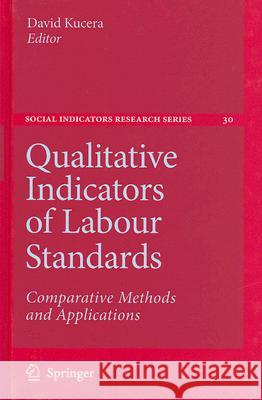Qualitative Indicators of Labour Standards: Comparative Methods and Applications » książka
Qualitative Indicators of Labour Standards: Comparative Methods and Applications
ISBN-13: 9781402052002 / Angielski / Twarda / 2007 / 298 str.
Recent years have witnessed a rapidly growing interest in the use and construction of "qualitative" indicators of labour standards. This is likely attributable to several factors: the rise of "socially responsible" investment, ongoing debates on the effects of labour standards on international competitiveness, and the sense that traditional quantitative indicators of labour standards are too narrow in scope to adequately capture the wide-ranging and inherently qualitative nature of many aspects of labour standards. Qualitative indicators, while generally having numerical values, are based on such methods as grading by experts, the coding of legislation, and the coding of other textual sources addressing violations of a more de facto nature. Measuring compliance with labour standards is an undertaking intrinsically fraught with difficulty. For there are a number of possible sources of measurement error, both random and non-random, that are unique to such indicators, on top of those that affect qualitative and quantitative indicators alike. The growing use of qualitative indicators of labour standards thus raises a number of questions about comparative methods of construction as well as the appropriateness of particular methods for particular applications. This volume results from a seminar that was organized to address these and related questions.











